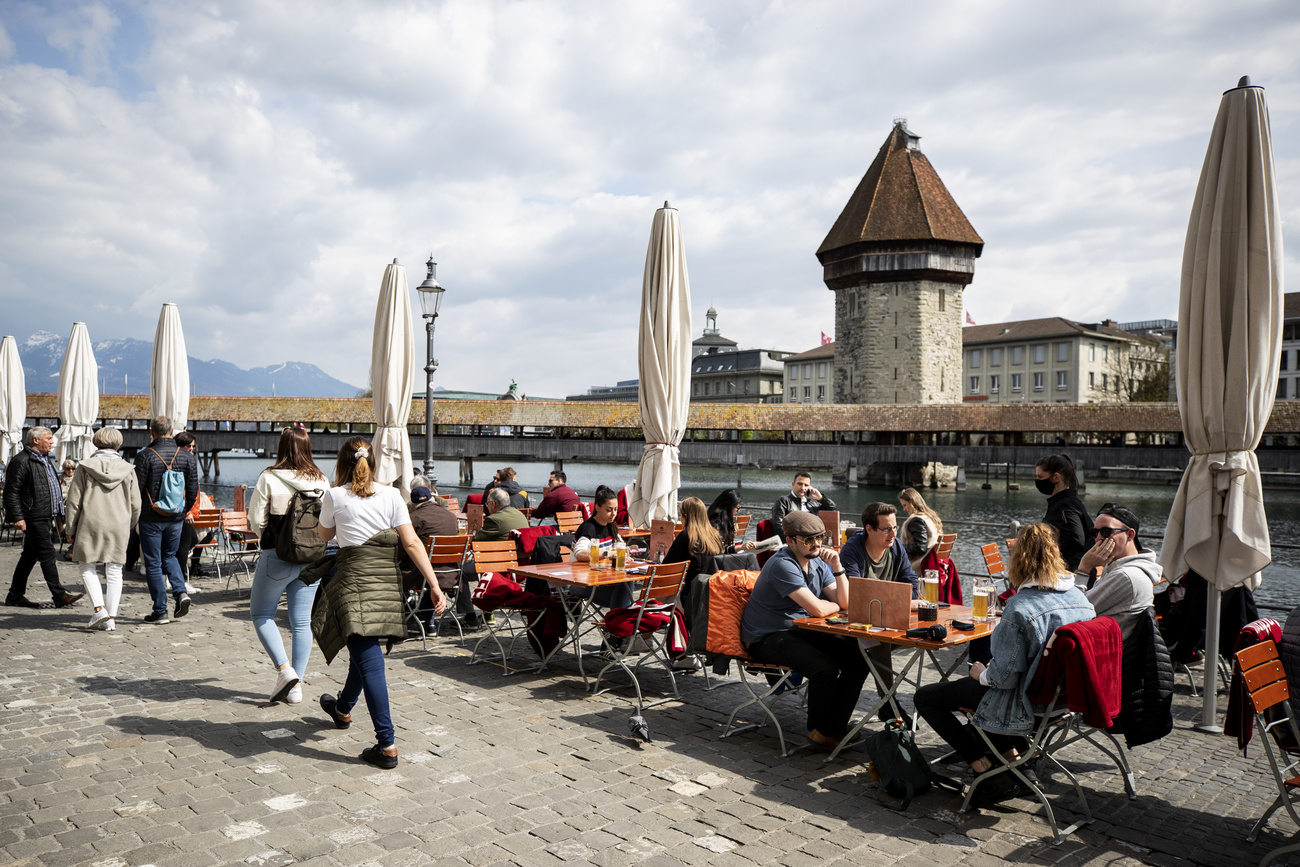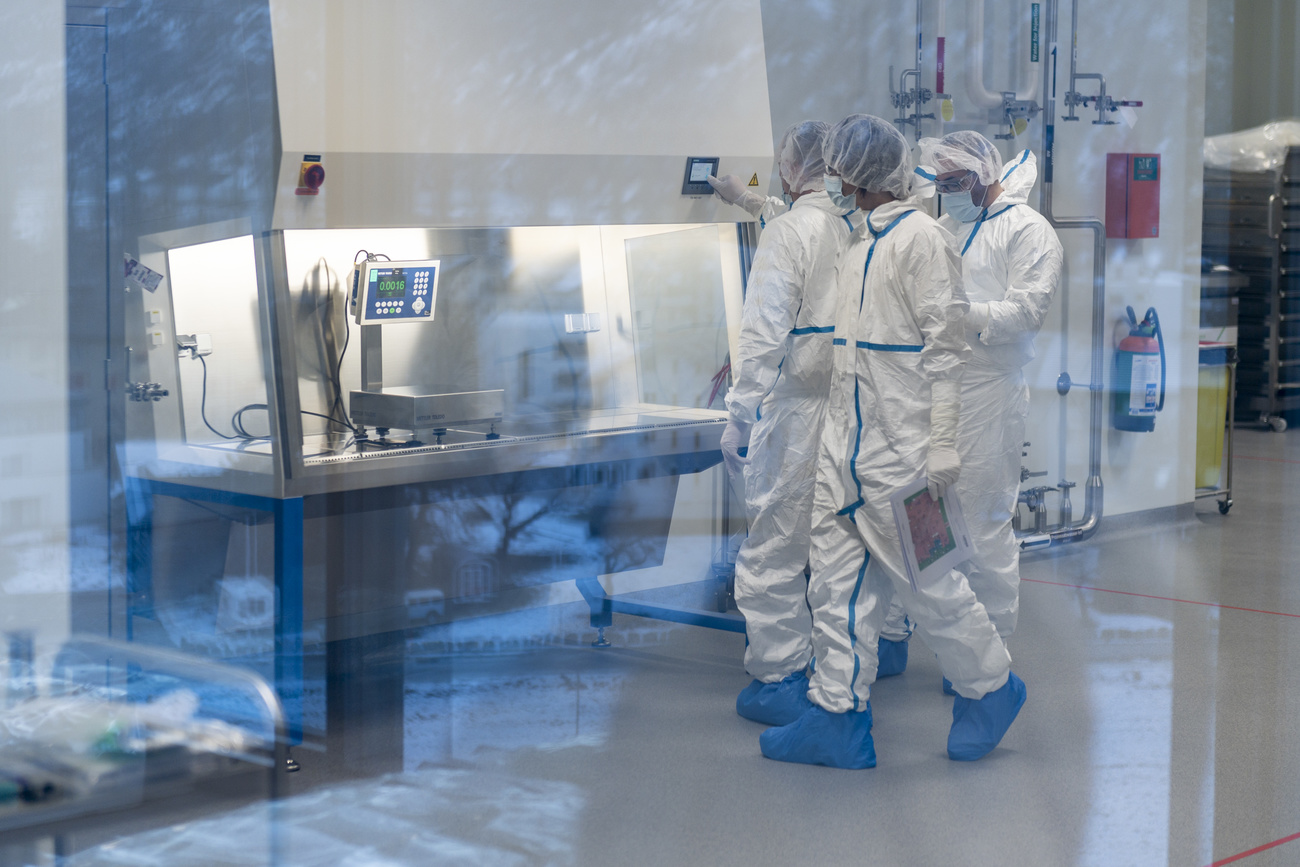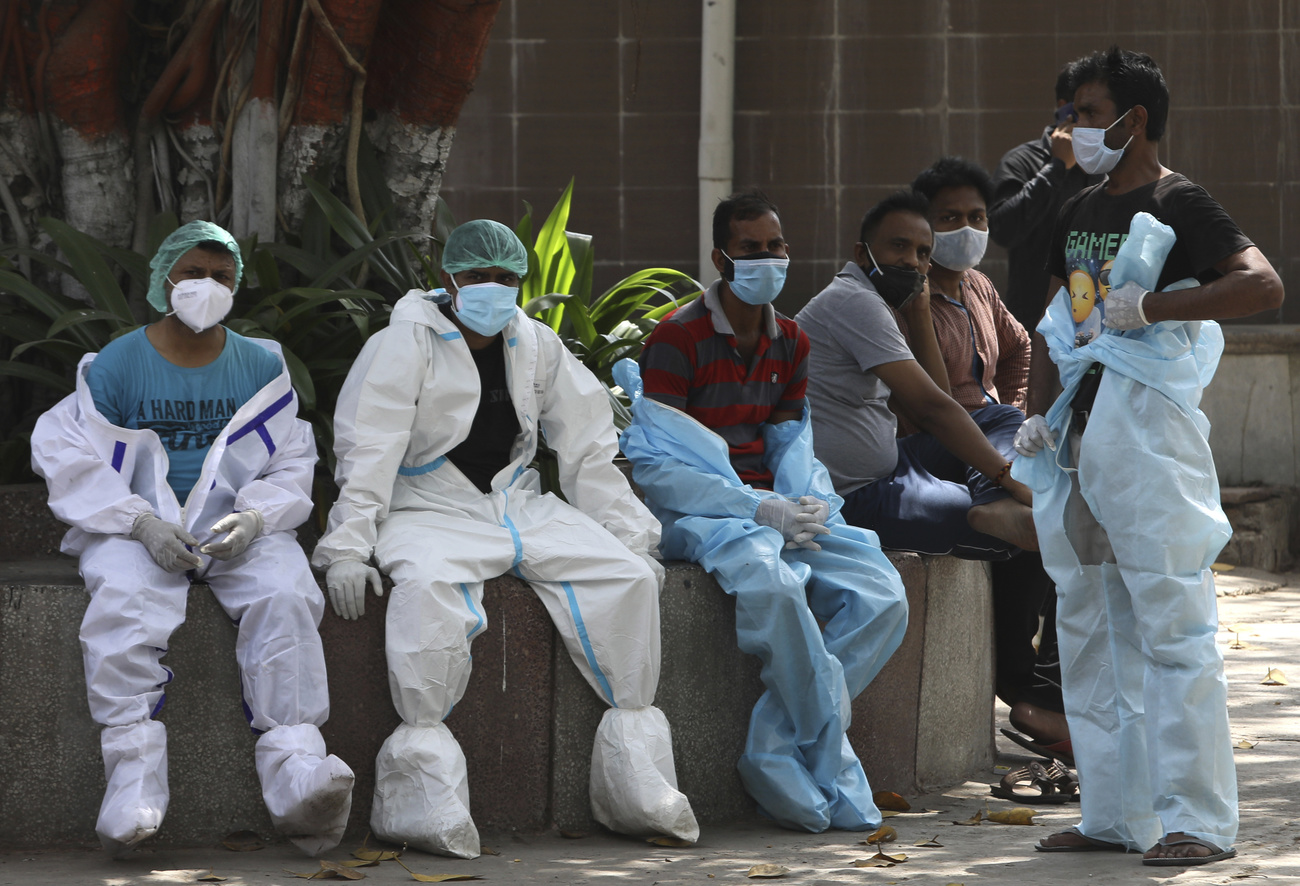Covid-19: Almost three million Swiss have ‘probably been infected’

Covid-19 stories in the Sunday newspapers include government estimates that almost three million people in Switzerland have had coronavirus, that poverty increases one’s chance of contracting and dying from it, and that recruitment problems are affecting vaccine delivery.
Every third person in Switzerland has probably been infected with the coronavirus so far but most without knowing it, according to a report in the NZZ am SonntagExternal link based on information from the Federal Office of Public Health.
“Calculated conservatively, about a third of the population has been infected since the pandemic began,” said health office spokeswoman Simone Buchmann.
Of these 2.8 million people, only the 650,000 or so who were tested during acute infection appear in the statistics. These people are considered to have recovered from the disease and will receive a Covid certificate even if they do not get vaccinated.
Starting in summer, these certificates will allow people who have been vaccinated, who have recovered and who have a negative quick test to attend various events.
However, the two million or so people who have had Covid-19 without knowing it are not considered to have recovered, although the infection can be detected retrospectively by antibody tests.
Buchmann said the government was now examining whether there could be a Covid-19 certificate for these people and also whether antibody tests would be incorporated into the vaccination strategy.
Poverty connection
Poor people in Switzerland have a greater risk of contracting Covid-19 and dying from the disease, according to a study by Bernese epidemiologist Mattias Egger, former president of the federal scientific task force.
A report in the SonntagsZeitungExternal link and Le Matin Dimanche said data from the Federal Office of Public Health shows that in the poorest areas of Switzerland around 29 out of 100,000 people had to be admitted to intensive care. In the richest areas, the figure was only 13 per 100,000.
One reason that poorer people are more likely to be infected is that they are less likely to be able to work from home – instead working unprotected in factories or on building sites, for example – and more likely to suffer from poor health and pre-existing conditions, the study said.

More
Are most Swiss residents rich?
The researchers also suspect that socially disadvantaged people have less access to local testing infrastructure, perhaps because they lack private transport or cannot easily take time off work to get tested. The study confirms that poorer people are 40% less likely to get tested.
What’s more, some people don’t get tested “so as not to have to go into quarantine and lose their earnings”, said Lisa Fry, spokeswoman for the aid organisation Caritas. Often these people do not receive compensation for their work because they are self-employed or on call.
Delivery delays
A lack of staff at Swiss pharmaceutical company and vaccine producer Lonza is one reason for delays in the delivery of the Moderna vaccine. The government now wants to help Lonza find the necessary qualified personnel, according to SonntagsBlickExternal link.
The paper reported that ten days ago Lonza CEO Albert Baehny met Interior Minister Alain Berset and admitted that the company had been unable to find the necessary 80-100 biotechnology specialists. Lonza did not reply to SonntagsBlick’s requests for comment.

More
Lonza to create 1,200 new jobs at vaccine-production site
The interior ministry said it was clarifying “whether specialists from the federal administration, federal-related companies and universities can be called upon”. It was also looking into how to support the placement of employees from pharmaceutical companies and other companies because the supply of Moderna vaccine “is of paramount importance for Switzerland”.
The SonntagsZeitung reportedExternal link that the immigration law for third countries was making the search for personnel more difficult since the number of workers allowed to come to Switzerland from non-EU countries was limited.
Last year Lonza submitted several applications in canton Valais to recruit specialists from third countries – the employment of 17 people was approved, the paper said.
Moderna boss Stéphane Bancel has blamedExternal link problems in hiring staff at Lonza for the delay in vaccine deliveries.

More
Coronavirus: the situation in Switzerland

In compliance with the JTI standards
More: SWI swissinfo.ch certified by the Journalism Trust Initiative











You can find an overview of ongoing debates with our journalists here . Please join us!
If you want to start a conversation about a topic raised in this article or want to report factual errors, email us at english@swissinfo.ch.